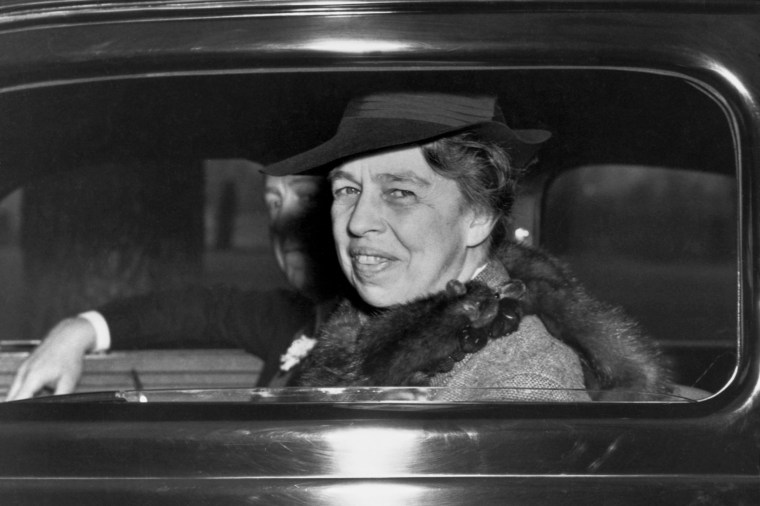Eighty years ago, First Lady Eleanor Roosevelt embarked on a top-secret mission to the Pacific theater, where the United States was battling Japan during World War II. And in going on the 25,000-mile trip — into territory still under enemy attack — Roosevelt pushed the boundaries of the first lady role and cemented her reputation as fearless and unconventional.
Her courageous journey is detailed in author Shannon McKenna Schmidt's recently published book, “The First Lady of World War II: Eleanor Roosevelt's Daring Journey to the Frontlines and Back.”
“I want people to see Eleanor Roosevelt in a new light … as an adventurer and a traveler,” McKenna Schmidt told Know Your Value. “Her trip to the Pacific really exemplifies so much of what we already admire about Eleanor: her courage, her compassion, her caring about people on an individual level, and her crusading for a better world.”
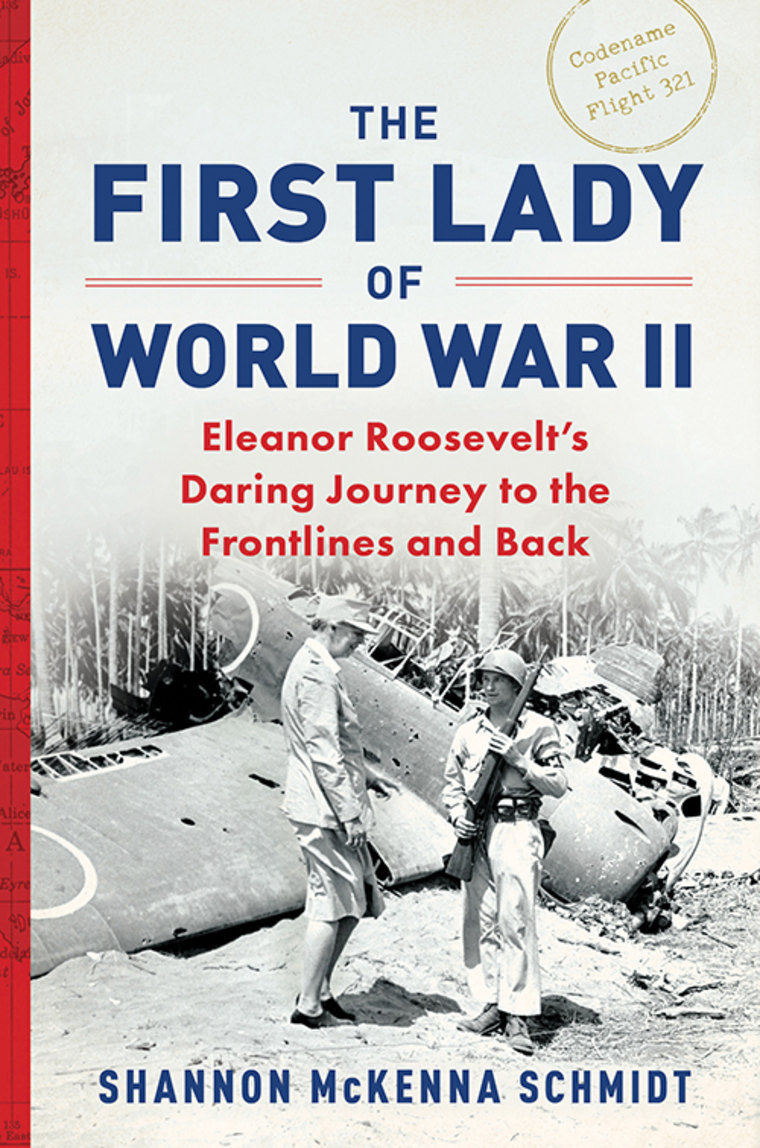
During the five-week trip in 1943, Roosevelt, then 59, went to Hawaii, New Zealand, Australia, and through the South Pacific. A reporter at the time described the trip as “the most remarkable journey any president’s wife has ever made.”
Her mission was to rally the allied soldiers and to report back to the president on what was happening on the frontlines. She also traveled as a representative of the American Red Cross and spent hours with U.S. servicemen.
“Eleanor was a leading voice in World War II, not only in the United States, but on the global stage as well,” McKenna Schmidt said. “She did everything from donating and blood and encouraging women to serve in the armed forces, to speaking out on Nazi aggression and chastising people for believing enemy propaganda.”
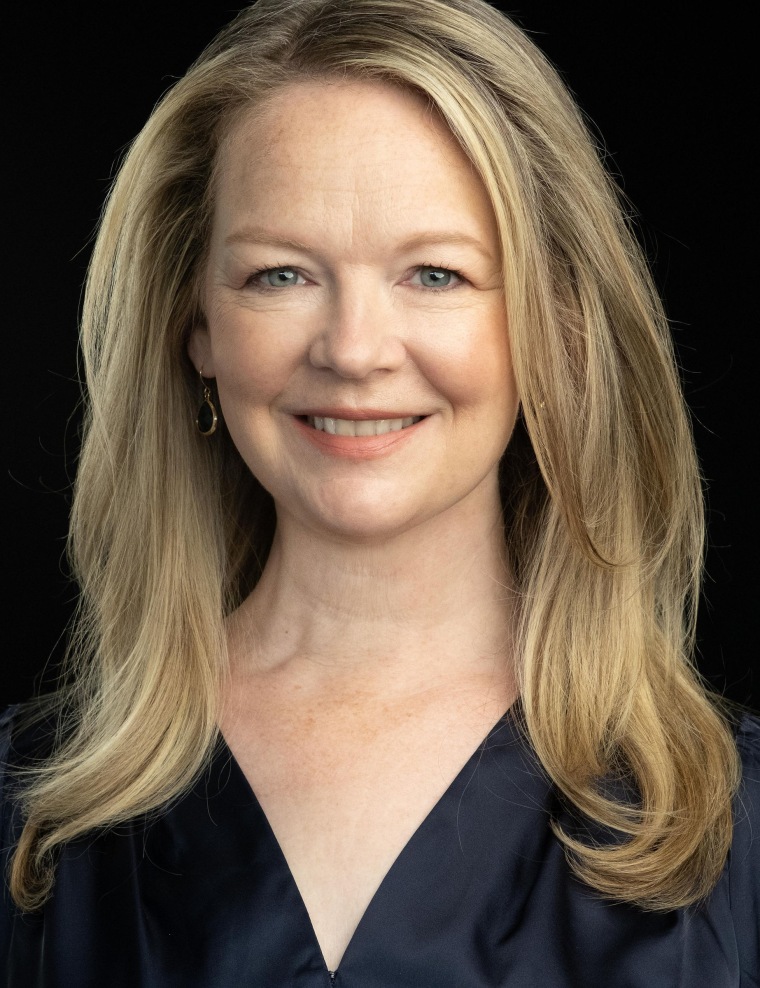
In honor of the 80th anniversary of first lady’s historic trip, which took place from Aug. 16 to Sept. 22, Know Your Value chatted with McKenna Schmidt about her book and how Roosevelt raised the bar for all first ladies to come.
The conversation is below and has been edited for brevity and clarity.
Know Your Value: Eleanor Roosevelt famously said “women are a weapon waiting to be used.” Tell us more about her role in promoting women involvement in politics, military, etc. – and why this was so important to her.
McKenna Schmidt: Eleanor was always looking ahead. She visited women’s army corps training camps and saw that women were the army behind the fighting forces. She was encouraging women to be more involved in politics and civic life. Not only did she encourage women to join the armed forces, she wanted women to have a place in major discussions about preserving peace after the war. For Eleanor, it was always about making change for women and preserving peace.
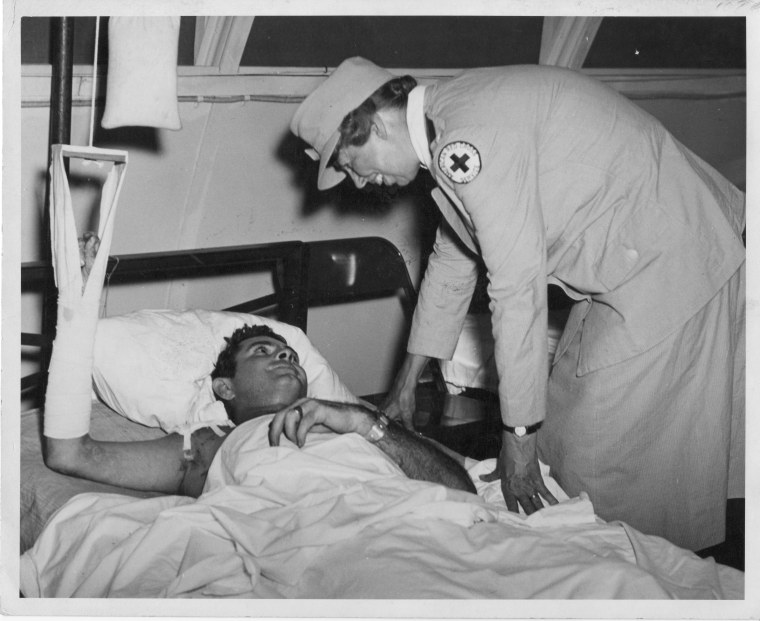
Know Your Value: It’s almost unheard of for a first lady to go to an active war zone. Why did the first lady at the time feel it was so important for her to make that trip?
McKenna Schmidt: Eleanor was a highly experienced traveler, but this trip was further and longer, more arduous and dangerous, and exceeded anything else she had done before. She was always looking for ways to contribute to the war effort and she was uniquely suited for this trip.
Her mission for the trip was to unite the home front with the fighting front and thank U.S. troops for their service and build morale. She would get up routinely at dawn so that she could have breakfast with the servicemen and catch them at their moments of ease to ask them what they needed from the home front. The trip was also an informal diplomatic mission to allied nations, Australia and New Zealand, and to see the war work that women were doing in those countries. On top of that, she went as a representative of the American Red Cross and inspected their facilities in the region.
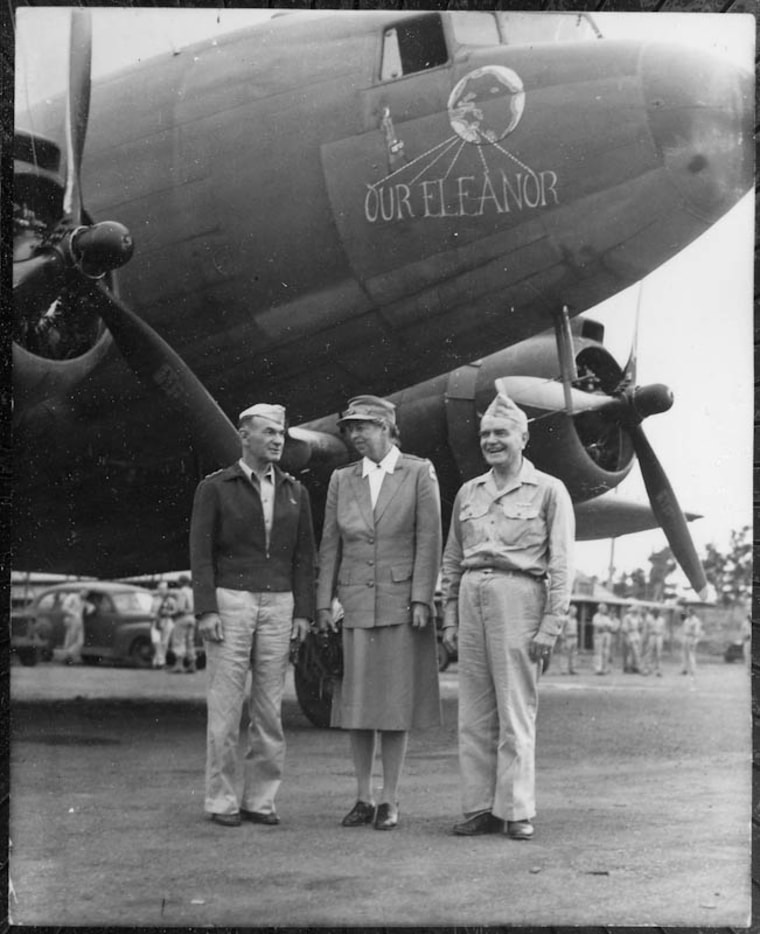
Know Your Value: How did Eleanor Roosevelt set the standard for all first ladies to come after her? What can women in leadership today learn from her?
McKenna Schmidt: The standard she set for all first ladies to come after her is a standard that's hard to achieve. Eleanor set that standard stepping out of her comfort zone and facing her fears. She was afraid of people's disapproval. She was afraid of the dark and public speaking. She had to overcome her fears to become such an extraordinary leader. I think that Eleanor would say to women today, “Don't let fear hold you back. Get out of your comfort zone and don't be afraid to take criticism. You're damned if you do and you're damned if you don't. You may as well do what you believe in.”
